We, the victims and families of victims of the Ejura killings submit this joint memorandum to petition the Appointments Committee of Parliament against confirming the Nomination of Justice Kingsley Koomson to the Supreme Court of Ghana, for his role in the work of the Inter-ministerial Committee to investigate the killings that occurred in Ejura by members of the Armed Forces.
Having watched the ongoing proceedings of the Appointment Committee of Parliament regarding the nomination of Justice Kingsley Koomson, and noted the responses Justice Koomson provided to questions asked of him with respect to the fact-finding Committee which he chaired in relation to the Ejura killings, we the victims and families of victims of the Ejura incidents deem it morally compelling to submit this memorandum; and to express on formal record why we consider that the nomination of Justice Kingsley Koomson to the Supreme Court should not be approved.
Background to the Establishment of the Koomson Committee
- As you are aware, On June 26, 2021, Ibrahim Mohammed Anyass Alias Macho Kaaka, a #FixTheCountry activist, was attacked by assailants at Ejura in the early hours of that day around 1:30am, when he was returning home. He later died of his wounds at the Komfo Anokye Teaching Hospital in Kumasi, barely two days later. He left behind a widow and 5 daughters.
- Prior to the attack on his life, Macho Kaaka had taken upon himself the duty of his conscience and of his faith, to speak truth and to seek the wellbeing of his community. Kaaka highlighted some of the basic infrastructure problems facing Ejura; the dilapidated conditions of basic schools in the community, the absence of proper toilet and sanitary facilities in the Zongo as well the poverty that his community continues to live in. Kaaka’s hope was that by drawing attention to these problems, these problems will gain the attention of authorities and that steps will be taken to resolve them.
- However, in connection with his activism, Kaaka started to receive negative attention and threats. Kaaka in several of his online videos talked about the fact that his life was in danger due to the threats he was receiving in connection with his activism.
- After the attack on Kaaka, the Ejura Police consequently took no active steps to investigate the incident. In fact, it took the youth of Ejura marching to the Zongo Chief’s palace to demand answers, before the police at Ejura were forced to even visit the scene of the crime to pick up the two large sticks Kaaka was attacked with.
- When news of Kaaka’s death on the 28th of June reached Ejura, the youth of Ejura were frustrated about the lax manner in which the police investigations into the attack on Kaaka were being carried out. Some of them demonstrated to express their displeasure over the conduct of the Police.
- After the burial, the youth took to the streets to demonstrate and express their grievances. During the demonstration, certain military personnel were deployed to Ejura, where unarmed civilians, including women and children, were indiscriminately shot at, killed and maimed by the military personnel.
- It was following the incident that the President of Ghana called for a public inquiry into the shooting incidents, and a 3-member Ministerial Committee chaired by the Nominee Justice Kingsley Koomson was subsequently put in place to investigate the conduct of the Police and Military that resulted in the deaths, injuries, pain and suffering inflicted on the Ejura Community.
The Work of the Koomson Committee
- As you may be aware, we like many people in Ejura, welcomed the President’s decision to instruct the Minister of Interior to inquire into the circumstances that led to indiscriminate killings of the people of Ejura by members of our military forces. It was on connection with this instruction that the Koomson Committee was put in place.
- However, within a few days of its establishment and particular during the public hearings conducted, it became clear that the Committee chaired by Justice Koomson did not approach this national duty with the level of humanity, sensitivity and impartiality that this important assignment demanded. Instead, the Committee became more interested in sanitizing the image of certain political interests, and setting in place a narrative and agenda that was intended to not only exonerate partisan wrongdoing but also expose the families and victims to ridicule.
- As such, we the victims and many people in Ejura were let down in our enthusiasm for what we assumed would provide a much-needed opportunity for truth, soul searching and institutional accountability for state-sanctioned violence.
- We were so troubled by the conduct of the Committee chaired by Justice Koomson that even during the hearings of the Committee, we wrote immediately to the Minister of Interior expressing:
- Our concerns about the continuous encroachment of the Koomson Committee into questions which, as we understood, were the object of a separate and concurrent criminal investigation. We noted further that we were doubtful of the prudence in the Committee’s decision to extend its inquiry into questions which the Ghana Police Service had publicly claimed were part of its investigation into the brutal murder of our son, husband and father, Ibrahim ‘Kaaka’ Mohammed by assailants.
- Our concern that the Committee was receiving testimony from persons who could potentially be called to testify in the criminal trial relating to the murder of Kaaka, or in the subsequent criminal trial of the individuals who are criminally culpable of the shooting of unarmed civilians and children in Ejura. We noted in particular the failure of the Committee to do so without advising the witnesses of their constitutional right against self-incrimination and of their right to be attend the hearings with the assistance of counsel; nor advising them that nothing they say before the Committee is privileged and can be adduced against them in a criminal trial.
- Our apprehension of the wisdom in the Committee’s attempts to portray the live media coverage of the misconduct of the Military in Ejura, as somehow causative, contributive or excusive of the criminal misconduct of members of our security forces. We stated also that we were concerned about the Committee’s bizarre focus on the media and its routine recourse to pejorative or prejudicial language in describing the actions of media, including suggesting, and allowing the idea to percolate that the video recordings of the shootings by journalists could have been “doctored”. We noted further our concern that these instances not only suggested that the Committee had already made up its mind, thereby creating a perception of bias among many people but also that it is courting disaffection for the very journalists who put their lives on the line so as to inform the public of the same events the President described as “unfortunate occurrences”.
- Our concern that the Committee’s attempts to portray the media’s highlighting of Kaaka’s affiliation with the #FixTheCountry call to action as somehow rash and misguided, did not tally with well documented and easily accessibly evidence of Kaaka’s own self-description and online activism. We were disappointed, in particular, that the Committee’s haste to distance Kaaka from his #FixTheCountry online activism, in connection with which he received several death threats, some of which are captured on video; could potentially prejudice the ongoing criminal investigation into the circumstances and motivations of Kaaka’s murder. As we understood from the Police’s own public communication, the question whether Kaaka was murdered because of his online activism was a probable line of inquiry that was still an active part of their ongoing investigation.
- Our sadness that the Committee by its conduct had emboldened the ‘public lynching’ of our son Iddi Mohammed and given weight to a growing attempt to hastily cast Iddi as the murderer of Kaaka, even though this narrative directly contradicts the accounts of the two first responders; and even though the Police arrested and have now charged in custody two other suspects in connection with Kaaka’s killing.
- Our understanding that the scope of the Committee’s terms of reference, however nebulous, did not relate to the circumstances that led to the Kaaka’s murder; or the circumstances that led to his burial. Rather that, it concerned directly, the circumstances that led to the deployment of the military to intimidate and indiscriminately shoot at a community that was grieving a loved one; and still trying to come to terms with the circumstances and motivations for his murder.
The Report of the Koomson Committee as Evidence of Dereliction of Duty
- The Report of the Koomson Committee confirmed the apprehensions the victims raised to the Minister of Interior, and in particular the concern of the Kaaka family that the Committee sought without basis to court public disaffection for the families of the victims, in order to shift public sympathies from the families.
- The families expressed concern in particular over the bizarre and unexplained conclusion contained in the Committee’s report that “We, accordingly, find that, the death of “Kaaka” was not directly linked to his social media activism. It is more probably a family feud”.
- As you are aware, ever since the release of the report, several prominent and credible people in our society have also expressed their bewilderment as to how the Committee could have arrived at that conclusion. Several of them criticized the obvious absurdity and bizarre nature of this finding.
- It was clear that that the Koomson Committee impoverished its own Report and diminished their own credibility by amplifying partisan propaganda in order to shift blame and to expose the family of the victims to ridicule, without any discernible justification.
- In order to appreciate the extent to which that statement by the Koomson Committee was a dereliction of duty and intentional attempt to expose already grieving families to public ridicule and attacks, it is important to recall that
- The Ejura Committee, by their own admission, had no mandate to investigate the death of Kaaka. They had no mandate to establish who killed him or why Kaaka was killed. In fact, when Sahada Hudu, Kaaka’s widow, appeared before the Committee, she was the only person who took the trouble to ask the Committee to clarify its mandate. At no point previously, had the committee taken the trouble to clarify its mandate to the witnesses who appeared before it.
- In response to Sahada Hudu, the Committee made it clear that, they had no business looking into the death of Kaaka. They admitted on camera, unequivocally, that because the matter was under investigation by the Police, it would be improper for them to intervene on those issues.
- Despite all this, the Committee still went ahead and made 40% of their findings about the murder investigations into the death of Kaaka. They also made statements that even common sense would have told them was improper. By so doing, they clearly prejudiced the criminal investigations into Kaaka’s murder.
- Further even when the Koomson Committee made pronouncements on the issues outside their mandate, the Committee was also selective about the kind of evidence it wanted to rely on and what it wanted to believe. All for no justifiable reason. Without any independent investigation of their own to disprove or add weight to any testimony, the Koomson decided to choose which testimony they wanted to believe and which ones they wanted to discount, and made no independent attempts, absent those testimonies to actually find out any fact.
- So, for instance, according to the Committee, they decided that Sahada Hudu’s hour-long testimony that Kaaka, her husband, confided in her on several occasions, that there were threats against his life in connection with his social media activism, was pure speculation. In reaching that conclusion, the Committee said that this was because Sahada Hudu had not reported those threats to the police; and had not told the police about the identity of the individuals.
- What is curious about that conclusion is that, during the hearings, at no point did the Committee ask Sahada Hudu, whether she had reported those threats and the identity of the persons concerned to the Police. When you watch the recording of the hearing, at the 31st minute of her appearance before the Committee, Ms Juliet Adime Amoah, a member of the Committee asked Sahada to confirm that she knows the identities of the individuals who were threatening her husband. After Sahada confirmed that she did, the same member of the Committee advised Sahada to go ahead and report the names of the individuals to the Police. Ms Amoah, the Committee member offered this advice without inquiring at any point whether Sahada had already made a statement to the Police regarding these issues. In fact, at the time of her appearance before the Committee, Sahada had already made a statement to the same effect to the Police. Thus the Committee could have easily verified this information as they had access to the police docket on Kaaka. Yet they failed to do so.
- Further, the Committee suggested that videos submitted to them by a certain Abeewakas, did not contain threats to Kaaka’s life and that the videos appeared after Kaaka’s death. They claimed that for these reasons, they doubted the authenticity of the videos and considered that this allowed them to state categorically that “accordingly, find that, the death of “Kaaka” was not directly linked to his social media activism”. This was the only basis of their conclusion.
- What is curious is that a committee which was sold to the public as a fact-finding committee made no attempt to actually find out any facts of its own. Even though they received several witness statements that made reference to Kaaka’s role as a social media activist, they did not even try to take a look at Kaaka’s social media activism. How was it possible for the Committee to make 40% of your findings about the death of a social media activist, and yet not even take the trouble to google the individual or go through his social media feed? Surely, this is not only embarrassing but discredits the Report and whatever conclusions they reached concerning the murder of Kaaka.
- Had the Koomson Committee been taken the trouble to independently look into Kaaka’s social media activity, they would have confirmed for themselves, several videos that are still up on Kaaka’s Facebook page; where he himself recorded various individuals and mentioned the names of persons threatening him. Had they done so, they would have confirmed for themselves that all these videos were mostly live streams made on Facebook; and not edited videos or videos capable of being tempered with.
- Who investigates the killing of a social media activist without even logging on to social media? Not even once?
- It is not surprising that so many people have found the findings of the Committee to be porous. Even as the Committee has sought to couch their weak and baseless evidence in exaggerated language; many have seen through it; and are now convinced that their language did little to cover up the depth of their shoddy job.
- Unfortunately, the Koomson Committee decided to stretch absurdity even further, by saying that, the killing of Kaaka was most probably because of a family feud.
- Now, one would expect that, because of the gravity of that conclusion and its possible repercussions, in terms of the public interest in this matter, and its effect on the ongoing criminal inquiry into Kaaka’s death, the Committee would have taken time to demonstrate clearly, and based sound logic, how it arrived at that weighty conclusion.
- Yet again, the Koomson Committee failed at this. Their careless regard for the family of Kaaka was evident in that conclusion; and has now been confirmed in their subsequent statements in the Press.
- In fact, after the report of the committee become Public, the Koomson Committee went on to say publicly that the Kaaka family have no right to question the work of the Committee. In their own words, “they do not have the right to question us because they did not send us.”
- Obviously, if accept this logic, it would mean that the Koomson Committee saw itself as only accountable to the persons who set them up; and not to the families of the victims or the persons directed affected by the incidents in Ejura; or even the Ghanaian public. We think that this is unacceptable.
- At nowhere in the entire report of the Koomson Committee, did they demonstrate or was there any evidence to show that the family of Kaaka was embroiled in any turmoil or feud.
- In fact, in reaching their conclusion, they relied wholesale on the testimony of one Aminu Mohammed, an individual who they chose to hear behind closed doors, even though this individual had previously repeated some of these discredited statements on Facebook, prior to meeting the Committee. Clearly, this was somebody whose testimony was intended as a wow factor, and so was deliberately shielded from broader public scrutiny. Yet, this was the only evidence the Committee cited as confirming their conclusion that Kaaka was killed because of a family feud.
- In so doing, the Committee failed to subject the testimony of this individual, who they described as a friend of Kaaka and a resident of Ejura, to even the most basic scrutiny.
- For instance, by the account of the testimony that the Committee itself summarized, the individual was not even a resident of Ejura but a person who lived in Burkina Faso. Secondly, the said individual whose version they decided to swallow hook, line and sinker, was not even in Ejura when Kaaka was killed, or at the time the Ejura killings occurred.
- In addition, this individual had not been in touch with Kaaka for at least the past 10 years. Kaaka and the said individual having become estranged sometime after Kaaka got married to Sahada.
- Further, the Committee failed to subject the person’s testimony to any scrutiny whatsoever. For instance, as proof that there was bad blood between Kaaka and Iddi, the individual claimed, that Kaaka had caused the arrest of Iddi sometime in 2020. According to this individual, Iddi had been kept in the Ejura Police Cells for about three days at the instance of Kaaka; and that he Aminu had advised Kaaka to leave Iddi in the cells for about a week to teach Iddi a lesson. The said Aminu even went on to allege that Kaaka’s mother had paid a bribe to the Ejura police to secure the release of Iddi after three days. He also claimed that Iddi travelled to Nigeria soon after his release.
- Despite its heavy reliance on this individual’s statement, at no point, did the supposed fact-finding Koomson Committee seek to establish whether there was in fact any record of arrest against Iddi in 2020 or attempt to cross-check with the police any of the fanciful stories Aminu narrated to them. They did not even verify whether indeed Iddi had travelled out of the country in 2020, as alleged by the said individual.
- In addition, the Koomson Committee decided to overlook the obvious absurdities in this story; including the accusations of bribery and corruption made against the police service. The Koomson Committee for no discernible reason chose to believe this individual. No attempts were made to corroborate or independently establish any of the claims made by the said Aminu Mohammed.
- The Koomson Committee’s failure to perform the most basic due diligence on this story, was baffling. The result was that the Koomson Committee became the mouthpiece of fake-news and a senseless conspiracy theory. As a fact-finding Committee, the Koomson Committee had one job: that was to establish facts. They failed in that task miserably.
- We were also disappointed that the Committee treated the testimony of another individual, Saadia Mohammed, who accused Baba Iddi of having something to do with the attack on his brother as “more reasonably probable”. Even though the Committee, by its own assertion had been given access to the docket on Kaaka, they decided to ignore the fact that this same individual had given contradicting statements to the Police regarding who she claimed to have seen on that night. They treated as irrelevant the fact that the same individual recanted her story several times; and has in fact given recorded interviews in which she contradicts herself severally on the same issue.
- Similarly, the Koomson Committee failed to take note of the glaring inconsistencies in the testimony of Muniratu Alhasson; and did not give any regard to the fact that her story just repeats almost entirely that of Saadia Mohammed, word for word. In addition, when scrutinized, it is hard to not conclude that the entire statement begs further questions. For instance, this individual claimed that she heard the sound of “Kaaka’s” motorbike. By what magic, was this person able to identify the owner of a motorbike from its sound only? This individual also claimed that after the motorbike arrived, she heard an unusual sound and came to her porch to see what was happening. Yet, she did not, by her own assertion, see anybody attack Kaaka. This was strange because even by her narration, she would have been the first witness to the scene, because she came out immediately when she claimed to have heard strange sounds. In addition, she claimed that when she was making her way to the scene, she bumped into Baba Iddi, and then shouted that “somebody” had caused the injury and was running out so people should come and see him”. If by her own assertion, the somebody she saw was Baba Iddi, why did she not say it there and then that the person she saw was Baba Iddi.
- It seems clear to us, that the Koomson Committee was only interested in believing any narrative they found was unfavourable to the family of Kaaka. As such, whenever they encountered any evidence that did not conform to their made-up minds, they either discounted it or did not even bother to solicit it. Also, whenever, they heard any account that conformed to what they wanted to hear, they did not even bother to probe it further.
- We are disappointed that a committee charged with such an important national duty, so shamefully failed to uphold the most basic value of impartiality, and due diligence.
- We are also disappointed that a committee supposedly chaired by a Justice of the Court of Appeal failed to show the minimum level of legal awareness and a sense of judicial restraint. Instead, the Koomson committee completely abandoned due process and showed zero respect for the fair trial rights of persons currently arrested in connection with the police inquiry into the death of Kaaka. We take this as sufficient evidence of their lack of integrity and their insensitivity.
Our Prayer
For the above reasons,
- We consider that Justice Kingsley Koomson lacks the necessary independence of thought, moral conviction and integrity that will support his nomination to the Supreme Court.
- Justice Kingsley Koomson’s record with the Koomson Committee shows that he is not up to the task and that he had failed when he was entrusted with a national duty requiring that he show the necessary independence of thought, moral conviction and integrity that will support his nomination to the Supreme Court.
- We invite the Appointments Committee and subsequently Parliament to reject the nomination of Justice Koomson to the Supreme Court.
Presented By
Alhaji Inusah Mohammed Bawa, Chair of the Joint Committee
Accra. Contact: +233244637285
Abdullai Abubakar (Representative of the Abdul Nasir Yussif Family)
Ejura. Contact: +233-594-998-837
Nafiu Mohammed (Representative of the Macho Kaaka Family)
Ejura. Contact: +233-246-448-053
Abdul Wahab Alhassan (Representative of the Muntala Mohammed Family)
Ejura. Contact: 0242923649
Madam Agatha Doyina (Representative of the Ayikpa Family)
Tel: +233-242-888-935
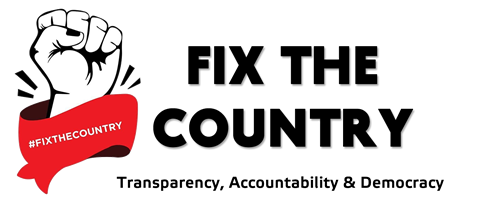
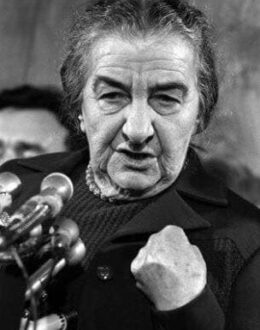
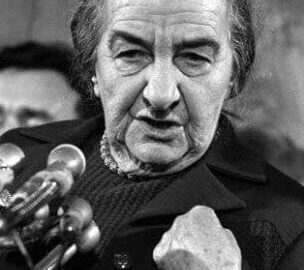
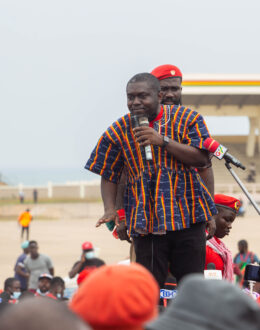
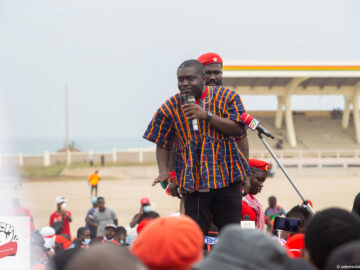
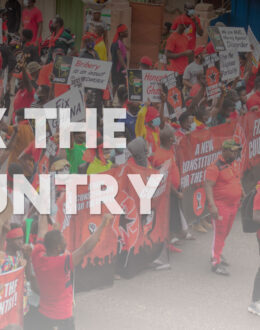
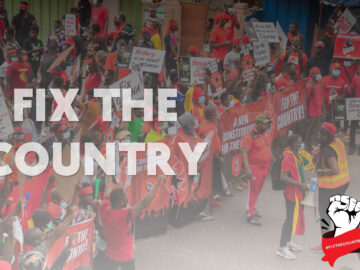
2 Comments
I don’t think the title of your article matches the content lol. Just kidding, mainly because I had some doubts after reading the article.
Thanks for sharing. I read many of your blog posts, cool, your blog is very good.
Write a Reply or Comment
You should or Sign Up account to post comment.